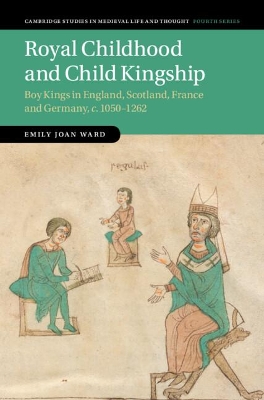Cambridge Studies in Medieval Life and Thought: Fourth
1 total work
Refining adult-focused perspectives on medieval rulership, Emily Joan Ward exposes the problematic nature of working from the assumption that kingship equated to adult power. Children's participation and political assent could be important facets of the day-to-day activities of rule, as this study shows through an examination of royal charters, oaths to young boys, cross-kingdom diplomacy and coronation. The first comparative and thematic study of child rulership in this period, Ward analyses eight case studies across northwestern Europe from c.1050 to c.1250. The book stresses innovations and adaptations in royal government, questions the exaggeration of political disorder under a boy king, and suggests a ruler's childhood posed far less of a challenge than their adolescence and youth. Uniting social, cultural and political historical methodologies, Ward unveils how wider societal changes between the eleventh and thirteenth centuries altered children's lived experiences of royal rule and modified how people thought about child kingship.
